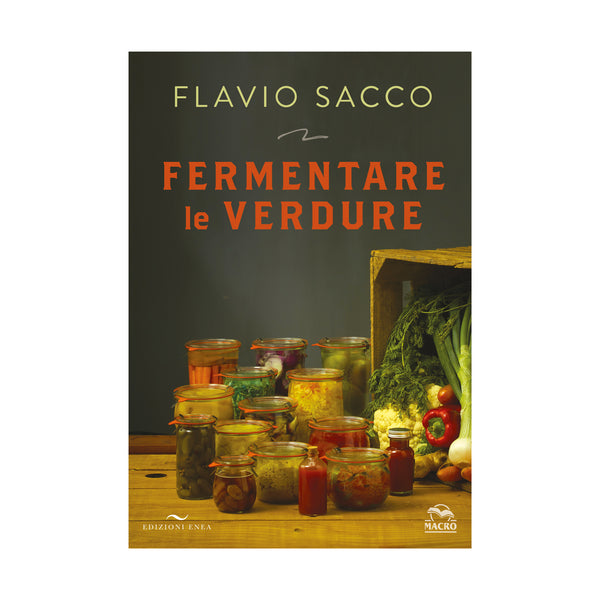Fermenting vegetables
Tax included
Shipping calculated at checkout
Shipments are processed only on Tuesday for orders received by 12pm on Monday.
Delivery times are 2-7 working days.
In stock
Author: Flavio Sacco
Publisher: Enea Editions - Macro Group
ISBN: 9788867731077
Published: February 2021
Interest in fermented foods is growing rapidly. We're witnessing a veritable rediscovery of fermentation and fermented foods, even though this transformation and preservation technique has been part of our gastronomic culture for a very long time.
But what does it mean for a food to be fermented? Fermentation triggers a series of transformations, primarily involving bacteria and yeasts, which alter the chemical composition of foods. These transformations have three main consequences: they allow for long-term preservation of foods, they develop various compounds that partially alter the flavor of foods, and they modify the availability of certain substances, improving their nutritional and health benefits. Furthermore, they enrich our gut microbiota with beneficial bacteria.
In this book you will find:
- The processes and principles that regulate the fermentation of vegetables.
- The methods that you can apply to all vegetables depending on your needs.
- 40 detailed recipes divided by vegetable and fruit category.
- How to best preserve fermented vegetables.
- Common problems encountered when fermenting vegetables and their solutions.
FLAVIO SACCO

VIVI ferments
We are Jessica Callegaro and Lorenzo Locatelli, co-founders of VIVI ferments and the Cucinare secondo natura project,
Our products are the result of years of study on food, cooking and nourishment, understood as everything that can help us live better.
We discovered fermentation by playing in the kitchen or maybe it was the ferments that chose to domesticate us!

Fermented vegetables and condiments
Fermented vegetables are produced through a process of spontaneous fermentation in the presence of salt. The raw materials used are all organic or biodynamic. The salt used is also integral and therefore rich in mineral salts and trace elements and of organic origin.
The presence of spices and herbs gives fermented vegetables not only aromatic characteristics, but also the virtues and benefits possessed by all the ingredients used.

